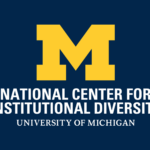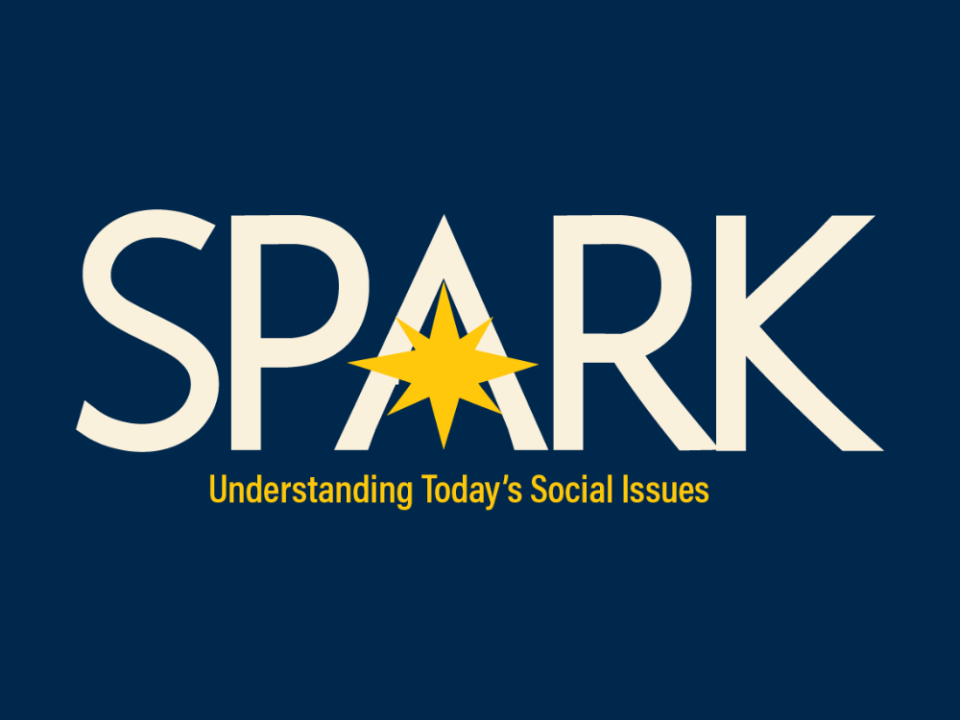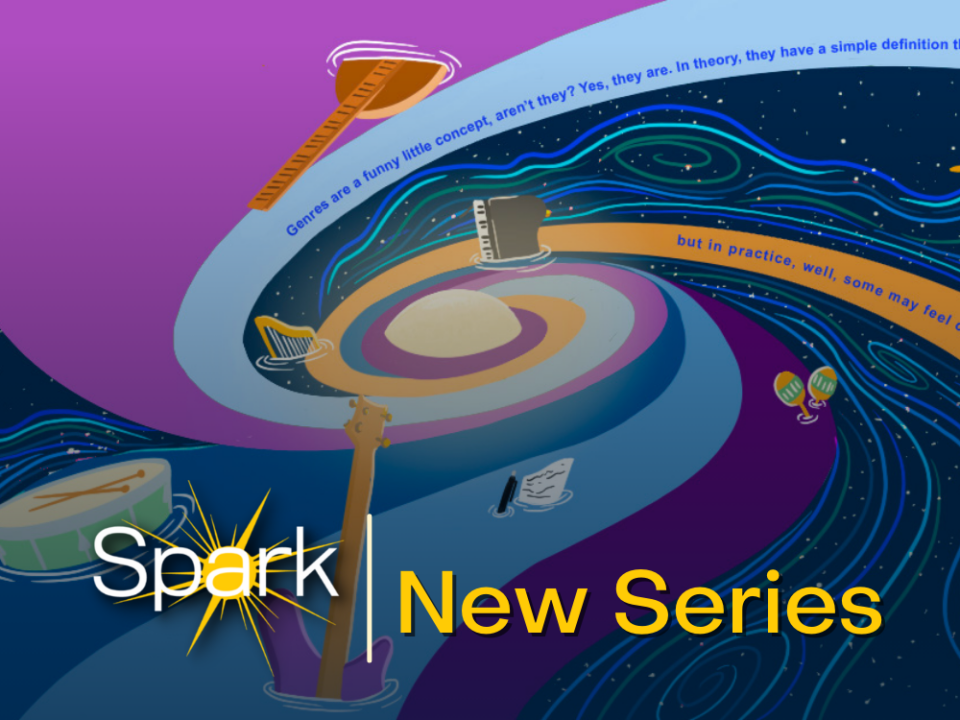- About
- News
- Events
- Initiatives
- Anti-Racism Collaborative
- Change Agents Shaping Campus Diversity and Equity (CASCaDE)
- Diversity Scholars Network
- Inclusive History Project
- James S. Jackson Distinguished Career Award for Diversity Scholarship
- LSA Collegiate Fellowship Program
- University Diversity & Social Transformation Professorship
- Publications & Resources
- About
- News
- Events
- Initiatives
- Anti-Racism Collaborative
- Change Agents Shaping Campus Diversity and Equity (CASCaDE)
- Diversity Scholars Network
- Inclusive History Project
- James S. Jackson Distinguished Career Award for Diversity Scholarship
- LSA Collegiate Fellowship Program
- University Diversity & Social Transformation Professorship
- Publications & Resources

Apply for the Inclusive History Project Student Advisory Committee
February 5, 2024
Visiting Scholar Lunch and Q&A with Dr. Whitney Pirtle
February 9, 2024Apply for the Inclusive History Project Fund for Research & Engagement
We are pleased to invite proposals for the Inclusive History Project’s (IHP) Fund for Research and Engagement. Through this funding program, we invite people across the University of Michigan's (U-M) three campuses to join our efforts to develop deeper knowledge of U-M’s history through a diversity, equity, and inclusion (DEI) lens and to engage partners and audiences both on and off our campuses.
The IHP operates as a hub for a range of activities and partnerships related to its mission to produce and share an inclusive and wide-ranging history of the University of Michigan. The IHP therefore seeks to fund compelling research and engagement projects that originate outside of the IHP and advance the creation and dissemination of knowledge about the university’s past with regard to DEI. Such projects may inform future reparative actions recommended by the IHP. For more on the IHP’s mission and activities related to research, engagement, and reparative action, please see A Design for the Inclusive History Project.
We welcome proposals for a wide range of research projects, creative endeavors, and engagement activities. These may include both new ideas and existing projects that need support to complete or expand their work. In addition, successful projects that are supported by the IHP Fund may be eligible for additional funding in the future, through scaling up as affiliate project sites that operate in direct partnership with the IHP.
Faculty, staff, students, and units are invited to apply, and may apply as individuals or collaborative teams. While project leads must be currently affiliated with U-M, community partners or organizations are welcome to participate in project teams. The IHP is especially interested in projects that involve multigenerational teams, promote collaboration across units and campuses, and facilitate engagement with diverse audiences.
Two types of grants are available: mini-grants up to $3K and large grants up to $25K. For details about each grant, including eligibility and how to apply, please see below.
The proposal deadline for both types of grants is Friday, April 5, 2024, with letters of endorsement due by Tuesday, April 9, 2024.
Mini-grants up to $3K
Mini-grants are intended for undergraduate and graduate students as well as smaller-scale activities. Projects funded through mini-grants should focus on research, engagement, and/or creative practice. Examples may include (but are not limited to) histories of particular student organizations, walking tours, collections of materials, exhibitions, presentations, mini-conferences, and publications, including zines.
Who can apply
- Proposals will be accepted from undergraduate and graduate students, faculty members (including tenured and tenure track faculty, librarians, archivists, curators, and clinical faculty), and staff members on the Ann Arbor, Dearborn, and Flint campuses. Please note that lecturers are eligible to apply for large grants only.
- Undergraduate and graduate students can apply for mini-grants as individuals, teams, or registered student organizations. Individual and team applicants must have a faculty mentor and sponsor, and the faculty member’s unit must agree to be the recipient and administrator of funds on behalf of the student(s).
- Collaborative teams composed of faculty, staff, graduate students, and/or undergraduate students are also welcome to apply, as are teams that draw from multiple departments or schools or colleges. Cross-campus collaborations are particularly welcome.
Funding guidelines
- Funding period: 12 months
- Budget items may include, but are not limited to:
- Personnel costs, including:
- Stipends totaling up to $1000 for project leaders, who may include staff, faculty, and students. For student grants, these costs may include up to $500 for the faculty mentor and up to $500 total for student leaders.
- For faculty- or staff-led projects, personnel costs may also include hourly pay for graduate and undergraduate students as research associates or project interns.
- Research expenses (travel to research sites, materials, supplies, etc.)
- Equipment (please note that, according to university policy, equipment is the property of the university)
- Costs related to hosting events and external speakers that are directly related to project activities
- Fees or honoraria for community partners, external speakers, and other contract personnel
- Costs related to sharing results, including publication costs, etc.
- Personnel costs, including:
- Funds administration
- In most cases, funds will be transferred to the project leader’s department or unit. IHP Dearborn project staff are available to provide central support for grant administration. All funds must be expended in accordance with policies and procedures in the project leader’s department/unit, school/college, and the university more broadly.
Additional guidelines
- Applicants who receive funding must submit a two-page final report at the end of the funding period (a template will be provided). Any grant funds that are unused by the end of the grant period must be returned to the IHP.
- Participation in a collaborative workshop with other funded projects near the conclusion of the funding period is required. As part of the workshop, funded individuals/teams will make a short presentation on their project and submit presentation materials to the IHP.
- All IHP Research and Engagement Fund applications undergo a review process carried out by the IHP team. Proposals will be evaluated through the following criteria:
- The inclusion of a significant focus on U-M’s history through a DEI lens, and alignment with the IHP’s research Frames: Origins & Trajectories, People & Communities, Sites & Symbols, and Research & Teaching
- The potential for project to advance the IHP’s mission in the areas of research and/or engagement
- The feasibility of project
- The potential audiences and impact of the proposed project
- Awards will be announced in April 2024.
Questions?
IHP team members are available for consultations in advance of the application deadline to provide guidance and answer questions. Please email [email protected].
How to apply
To apply, please submit the following:
- Project abstract (100 words maximum)
- A brief overview or summary of your proposed project. This will be made public on the IHP website if your proposal is funded.
- Project description (2-3 pages)
- A description of the proposed project that addresses the central research question or primary idea, relevant background, approach, and anticipated outcomes (publications, websites, exhibits, walking tours, events, conferences, etc.). If an existing project, please address progress to date.
- A project rationale that addresses the proposed project’s alignment with the goals of the IHP
- Plans for campus and/or community engagement, including primary or intended audiences, plans for sharing findings, and more
- A timeline for the project
- Project leadership and project team (1 page)
- A statement that provides brief bios of the project leader(s) and addresses how past work prepares the project leader(s) for the proposed project
- (If applicable) Brief bios of the project team that include a short outline of each member’s role
- Budget and budget justification (template provided) that includes a listing of budget items, a brief justification for each item, and the total amount requested.
- Please indicate any additional funding sources, applied for or awarded.
- Brief letter(s) of endorsement or authorization for the following projects, due by April 9, 2024:
- For student mini-grants, a letter of support from the faculty mentor/sponsor
- For projects involving staff, archivists, curators, and librarians, a letter of authorization and support from the supervisor
- For projects with community partners, a letter of support from the partnering organization
Large grants up to $25K
Large grants are designed to fund the design and implementation of new research and engagement projects related to the IHP, to support the expansion and completion of existing projects, and to catalyze projects designed to engage our campuses and local communities in learning about the university’s history of inclusion and exclusion. The IHP is interested in proposals for a wide range of projects that include research on the university’s history and engagement in some form, which may include more traditional research projects, exhibits, walking tours, performances, workshops, etc.
Who can apply
- Large grants are available for projects proposed and led by faculty and/or staff only. Proposals will be accepted from faculty members (including tenured and tenure track faculty, lecturers, librarians, archivists, curators, and clinical faculty) and staff members on the Ann Arbor, Dearborn, and Flint campuses.
- Collaborative teams composed of faculty, staff, graduate students, and/or undergraduate students are strongly encouraged to apply, as are teams that draw from multiple departments or schools or colleges. Cross-campus collaborations are particularly welcome.
Funding guidelines
- Funding period: 12 months or 18 months
- Budget items may include, but are not limited to:
- Personnel costs, including:
- Compensation up to a summer ninth (capped at $9,000) for tenure-track and clinical faculty members leading projects
- Compensation for lecturers leading projects, through a 0.05-0.10 FTE temporary research appointment over the life of the grant (compensation at the lecturer’s base salary rate and capped at $9,000)
- Note that a letter of authorization and support from the lecturer’s unit is required with the application.
- Additional pay or salary offset for staff members, librarians, archivists, and curators leading projects, calculated as a percentage of effort/salary
- Note that a letter of authorization and support from the supervisor is required with the application. An additional letter of support from the unit’s director stating how the proposed project advances unit priorities and objectives is welcome.
- Personnel costs may also include compensation for additional faculty and staff collaborators at U-M as well as for community partners and alumni who may be part of the project team. Compensation should be based on percentage of effort/salary over the course of the grant.
- No more than $12,000 in total compensation is allowed for project team members (including the project leader’s or leaders’ compensation).
- Costs may include hourly pay for graduate and undergraduate students as research assistants or project interns, which does not count against the $12,000 cap.
- Research expenses (travel to research sites, materials, etc.)
- Supplies related to project activities
- Equipment (please note that, according to university policy, equipment is the property of the university)
- Costs related to hosting events and external speakers or consultants that are directly related to project activities
- Fees or honoraria for external consultants and other contract personnel
- Costs related to disseminating results, including web design, publication costs, etc.
- Personnel costs, including:
- Funds administration
- In most cases, funds will be transferred to the project leader’s department or unit. IHP Dearborn project staff are available to provide central support for grant administration. All funds must be expended in accordance with policies and procedures in the project leader’s department/unit, school/college, and the university more broadly.
Additional guidelines
- Applicants who receive funding must submit a two-page final report at the end of the funding period (a template will be provided). Any grant funds that are unused by the end of the grant period must be returned to the IHP.
- Participation in a collaborative workshop with other funded projects near the conclusion of the funding period is required. As part of the workshop, funded individuals/teams will make a short presentation on their project and submit presentation materials to the IHP.
- All IHP Research and Engagement Fund applications undergo a review process carried out by the IHP team. Proposals will be evaluated through the following criteria:
- The inclusion of a significant focus on U-M’s history through a DEI lens, and alignment with the IHP’s research Frames: Origins & Trajectories, People & Communities, Sites & Symbols, and Research & Teaching
- The potential for project to advance the IHP’s mission in the areas of research and/or engagement
- The feasibility of project
- The potential audiences and impact of the proposed project
- Awards will be announced in late April 2024.
Questions?
IHP team members are available for consultations in advance of the application deadline to provide guidance and answer questions. Please email [email protected] with consultation requests and questions.
How to apply
To apply, please submit the following:
- Project abstract (150 words maximum)
- A brief overview or summary of your proposed project. This will be made public on the IHP website if your proposal is funded.
- Project description (4 pages maximum, not including references)
- A detailed description of the proposed project that addresses the central research question or primary idea, significance and background, approach and methods, and anticipated outcomes or deliverables (publications, websites, exhibits, walking tours, events, conferences, etc.). If an existing project, please address progress to date.
- A project rationale that addresses the proposed project’s alignment with the goals of the IHP
- Plans for campus and/or community engagement, including primary or intended audiences, plans for sharing deliverables and findings, and more.
- Project leadership and project team (2 pages maximum)
- A statement that provides bios of the project leader(s) and addresses how past work prepares the project leader(s) for the proposed project. If community partners are involved, please specifically address their role as co-creators of the project.
- (If applicable) Short bios of the project team that includes a brief outline of each member’s role
- Timeline/schedule for the proposed project (1 page)
- Budget and budget justification (template provided)
- A detailed listing of budget items that includes a brief justification for each item, and specifies any other funding the project has received, with details about funder(s) and timeline(s).
- Brief letter(s) of endorsement or authorization for the following projects, due by April 9, 2024:
- For projects involving the effort of staff, archivists, curators, and librarians, a letter of authorization and support from their supervisor. An additional letter of support from the unit’s director stating how the proposed project advances unit priorities and objectives is welcome.
- For projects involving lecturers, a letter from their department or program supporting their temporary research appointment
- For projects with community partners, a letter of support from the partnering organization
What is the difference between mini-grants and large grants?
Both seek to advance the study of U-M’s history through a DEI lens through a variety of research and engagement activities. The different funds exist to support projects of different sizes and durations, and to involve different members of our university community. Each grant has different specifications in terms of who can apply and the level of funding–check out the detailed information on each grant for that information. Briefly:
- If you have a small project that will cost $3K or less that focuses on some kind of research or engagement activity, apply for a mini-grant.
- If you are an undergraduate or graduate student and want to submit a proposal for a project you have conceived and will lead, apply for a mini-grant. You can also join teams with staff or faculty members who apply for large grants.
- If you are an instructional faculty member and your project is related to a course, the IHP Teaching Fund is there to support your work. Be on the lookout for our next call for applications in late summer 2024.
Who is eligible to apply for an IHP mini-grant?
Mini-grants are intended for undergraduate and graduate students in particular, and students can apply as individuals, teams, or registered student organizations. Staff members, tenure-track faculty, clinical faculty, librarians, archivists, and curators who are seeking funding for smaller-scale activities are also welcome to apply. We ask lecturers to apply for large grants only.
What types of projects do mini-grants fund?
IHP mini-grants can fund a wide range of projects related to learning about and communicating U-M’s inclusive history, including those involving research, activities designed to engage people in learning about the university’s past, and creative practice related to the IHP. Examples of projects could be histories of particular student organizations, walking tours, collections of materials, exhibitions, presentations, mini-conferences, and publications, including zines–but there are many others as well. If you have a question about whether the project you have in mind would be eligible for a mini-grant, we’re happy to help: reach out to [email protected].
What are eligible and ineligible expenses for mini-grant funding?
Mini-grants can cover a wide range of expenses related to projects, including costs for supplies and equipment, costs related to hosting events or conducting research, and more. Mini-grants also provide up to $1000 total for stipends that can be shared among project leaders. There’s a detailed list of eligible expenses and a budget template to use with your proposal on the “How to Apply” section above. There are some ineligible expenses, including hourly pay for student researchers on student-led projects and food and drink outside of hosting events. If you have questions about eligible expenses, email [email protected].
What are the requirements of faculty mentors and sponsors of undergraduate and graduate student applicants for mini-grants?
The first requirement is that the faculty member must write and submit a letter of support by April 9, 2024, that indicates that they are willing to work with and mentor the student or student team and that their unit agrees to be the recipient and administrator of funds on behalf of the student(s). During the project, the faculty member will help to guide the work itself, serving as a mentor, sounding board, etc., for the students involved. What this mentoring and support looks like will vary from project to project.
How do I apply for a Research & Engagement grant?
The mini-grants and large grants have slightly different applications, but we use a system called InfoReady to collect applications for both. See the “How to Apply” sections above for detailed information on the application components for each grant, and click the “Apply by April 5” button at the end of those sections to be taken to the correct InfoReady application. Note that you’ll need to log in with your U-M credentials.
I am part of a collaborative team applying for a grant. How do we submit an application?
The team should select someone to submit the application and to serve as the main point of contact for the project. You’ll have the opportunity to provide brief bios for each team member and describe each person’s role as part of the application.
How much funding can be requested?
Each grant has a maximum funding amount–$3,000 for mini-grants and $25,000 for large grants– and funds can be requested up to that amount. However, your project may not require the maximum amount, and you are more than welcome to request a smaller amount.
Does the IHP select proposals for partial funding, so at a lower amount than requested?
Yes, this is possible, especially for large grants and in funding cycles when we receive a high number of quality proposals. If this happens, your award letter will indicate the partial funding amount.
When do funded projects need to be completed?
For mini-grants, projects are expected to be completed within the 12-month grant period. For the large grants, the grant period is 12 or 18 months.
When is the application due? Is the deadline flexible?
The application deadline for both mini-grants and large grants is Friday, April 5, 2024, with letters of support or authorization due by Tuesday, April 9, 2024. The application deadline is not flexible, as our evaluation of applications begins very soon after the deadline. If you miss the deadline, be on the lookout for the next round of applications.
How will proposals be evaluated?
Proposals are evaluated by the IHP team with the following criteria in mind:
- The inclusion of a significant focus on U-M’s history through a DEI lens, and alignment with the IHP’s research Frames: Origins & Trajectories, People & Communities, Sites & Symbols, and Research & Teaching
- The potential for project to advance the IHP’s mission in the areas of research and/or engagement
- The feasibility of project
- The potential audiences and impact of the proposed project
When and how will I know if my application has been awarded funding?
All applicants will be notified whether their proposal has been funded by email by April 30, 2024.
If my proposal is funded, do I need to complete a grant report?
Yes. Applicants who receive funding must submit a two-page final report at the end of the funding period (a template will be provided). We are also eager for project leads and teams to share their findings and their experiences with each other and with the IHP team. Funded leads and teams are therefore required to participate in a collaborative workshop with other funded projects near the conclusion of the funding period. As part of the workshop, everyone will make a short presentation on their project and submit presentation materials to the IHP.
What happens if I do not use all of the grant funds?
Any grant funds that are unused by the end of the grant period must be returned to the IHP.
How does the IHP issue grant funding?
The IHP will send award letters via email to those receiving grant funding, and in most cases that letter will include a funds transfer form that you will fill out and return to us. On the Dearborn campus, IHP Dearborn project staff are available to provide central support for grant administration. We plan to send funds to the recipient’s department or program in May 2024.




